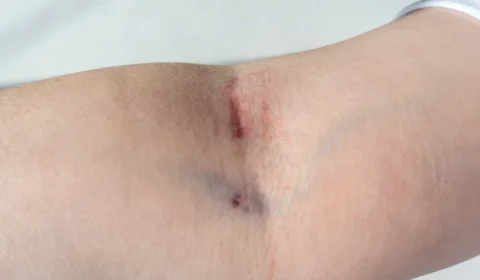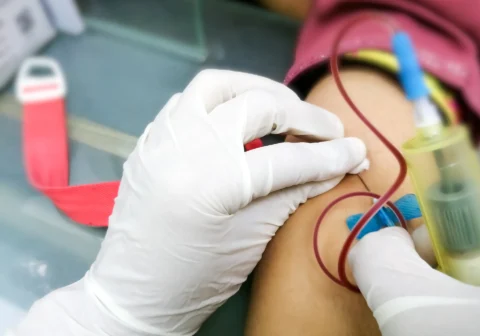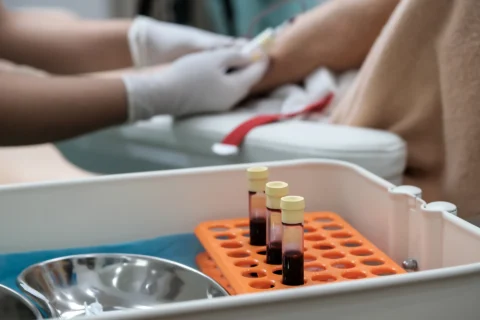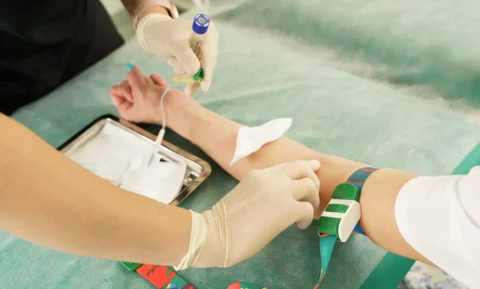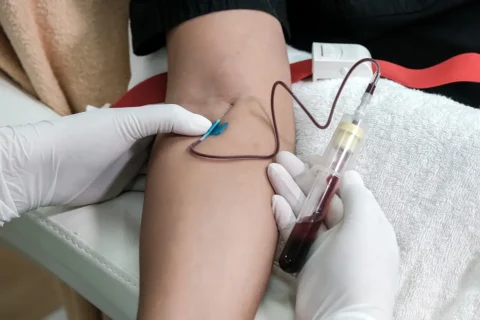A cancer diagnosis is a life-changing event for many oncology patients. They often experience physical changes because of their health conditions and their cancer treatments, making them feel conscious about their appearance. If you’re interested in becoming a licensed aesthetician that helps cancer clients during difficult times, then oncology esthetics might be the best aesthetic medicine niche for you.
So what are the things that a licensed aesthetician should know about oncology spa solutions? Oncology esthetics is an advanced branch of medical aesthetics in which aestheticians come up with safe and effective skin treatments that won’t cause negative skin reactions in a cancer patient. An oncology trained aesthetician should know how different oncology esthetics is, how they can help cancer patients, and what their future might be before signing up for a course.
What You Need to Know Before Your Oncology Aesthetics Training
According to the National Cancer Institute, about 39.5% of Americans are diagnosed with cancer in their lifetime. Along with breast cancer, skin cancer is also one of the most common types of cancer in the country. This makes oncology esthetics a rapidly growing industry as more cancer clients look for safe and gentle skin care services to address their needs without affecting their cancer treatments.
Becoming an oncology trained esthetician requires adequate training and licensure to ensure that you’re ready to take care of an oncology patient and anticipate their needs. In addition to basic skincare treatment, a licensed esthetician should also know how to modify a spa treatment to ensure safer outcomes for an oncology client.
Before starting your oncology esthetics training, here are important pieces of information about the courses you should know:
Oncology Aesthetics vs. Other Aesthetic Medicine Training
Oncology esthetic training courses teach participants how to perform an in-depth skin analysis and understand the patient’s cancer journey. Their chemotherapy or other cancer treatments greatly affect how skin treatments are done, so the oncology esthetician should ask these questions to every person they treat:
- Are there irritations or rashes on the skin caused by cancer therapy?
- Does the medication they take result in the appearance of acne-like symptoms?
- Are there changes in the skin tone and texture after the chemotherapy or cancer treatment?
- Is the patient in cancer remission? Are they already a survivor?
- Do they have a port? Where is it located?
- Are the lymph nodes removed? Where were they originally found?
While traditional aestheticians are mostly concerned about finding the best treatment for their patients and ensuring they won’t experience side effects, oncology estheticians also have to consider ways to provide relief, ease their skin reactions, and improve their overall sense of well-being.
Basic Requirements for Oncology Aesthetics Training
Like traditional beauty therapists and aestheticians, oncology estheticians also need to have a medical degree and active license to qualify for oncology esthetic training programs. However, they distinguish themselves from the rest of aesthetic medicine professionals by undergoing specialized education and licensure that focus on understanding the needs of a cancer patient.
What You Learn in Oncology Aesthetics Courses
Conventional aestheticians earn their specialized oncology certificates by attending various courses that involve laboratory, online, and classroom experiences. Several institutions offer oncology esthetics training programs, but Oncology Training International, Inc.’s Oncology Esthetics Foundation Training (OEFT) is only one of the few programs recognized by The International Society of Oncology Estheticians and Allied Professionals (ISOEAP).
The course curriculum of an oncology aesthetics course varies per training provider, but most of them contain lessons that are similar to the 10 study modules of OEFT:
- Cancer crisis
- The disease
- Cancer treatment
- Precautions and contraindications
- Psychological therapy
- Spa setting
- Ingredients in skincare
- Skin cancer
- Spa business practices
- Standards of practice and administrative considerations
How Skin Treatments Help Manage Cancer
Oncology estheticians are equipped with unique skill sets that enable them to treat the skin of cancer patients safely and effectively – from oncology facial treatments to oncology massage therapy and everything in between. These estheticians are also trained to be psychologically perceptive of their patients and help them manage symptoms like pain, insomnia, and anxiety.
Aside from skin care treatments that are safe for cancer patients, oncology aestheticians may also offer other beauty services like:
- Areola tattooing
- Eyelash extension
- Brow reconstruction through makeup
- Prosthetic fitting services
- Hair and wig fittings
What Happens After You Finish Training
After completing the basic oncology aesthetic training course and earning a certificate, oncology estheticians may start offering their services to cancer patients. But they may also learn about other oncology spa services to serve their clients better. Some services might require additional treatments, so make sure to ask about them before signing up for a course.
Some oncology aestheticians start their own practice after learning enough oncology esthetic services, but others choose to work closely with experienced oncology estheticians instead. This is a good way to earn more experience and improve your skills if you’re not interested or ready to open an oncology esthetic clinic yet.
Broaden Your Aesthetic Services With Online Courses at FACE Med Store
FACE Med Store is a reliable partner of hundreds of clinics, medical spas, and independent healthcare practitioners across the country when it comes to high-quality medical supplies. We’re dedicated to helping our clients provide the best treatments for their patients by supplying them with medical and beauty tools and products at reasonable prices.
In addition to our quality tools and products for beauty and body treatments, we also offer online training courses for aspiring aestheticians. Each of our training programs is designed by specialists in the industry. Visit our website today to know more about our online courses or medical products.
